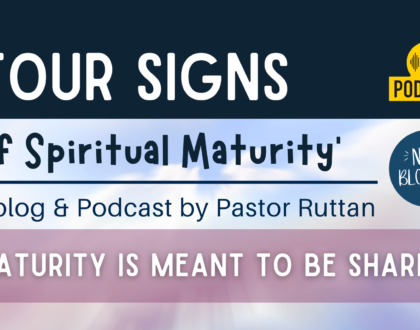What Makes People Happy?
by Westminster
What makes people happy?
Presents? A thank you? A big bag of potato chips with zero calories?
The answer will be different for different people.
A single mom may want breakfast in bed and some alone time; but that boasts no promise for a guy in college. All he wants is for the girl at the pub to acknowledge he exists.
Whatever happiness is, we want it. It’s even made its way into the modern creed: Health and Happiness!
 But that doesn’t tell us what makes people happy. It just means that people assign it value in their lives.
But that doesn’t tell us what makes people happy. It just means that people assign it value in their lives.
So what do we know?
Lucy Maud Montgomery was the author of Anne of Green Gables. She struggled with hardship and depression. In a journal entry from 1903 she wrote: “Happiness is an elusive thing. We may not lay violent hands on it or cajole it into our hearts…”
Very true. It’s not easily bossed around.
When the famous doctor, missionary and musician Albert Schweitzer addressed the graduating class from Eton College, he speculated about the future happiness of the students:
“I don’t know what your destiny will be,” he said. “Some of you may be actors, politicians, teachers, doctors, surgeons, but I do know this: the only ones among you who will be really happy are those who have sought and found how to serve.”
Later, the students asked him about his sacrifices. He dismissed the inquiries and said, “It’s not a matter of sacrifice, it’s a matter of happiness, actually: happiness consists in service, in giving yourself here and now to that which is worthy and above your own self-interests.”
"happiness consists in service" Albert Schweitzer #happy
— Matthew Ruttan (@MatthewRuttan) April 8, 2016
And then there’s Hector. In Hector and the Search for Happiness, we read about a young psychiatrist who travels the world trying to understand what makes people happy.
As he interacts with old friends, gurus and strangers, he stumbles upon some gems that I think many of us can relate to:
- Happiness often comes when least expected
- Making comparisons can spoil your happiness
- Many people only see happiness in their future
- Happiness is being with the people you love
- Happiness is doing a job you love
- Happiness is knowing how to celebrate
In a roundabout way, Hector’s search makes me think of Morrie Schwartz of the now-famous Tuesdays with Morrie. Having been diagnosed with Lou Gehrig’s disease, he saw things with fresh eyes–and not necessarily for the worse.
Because his illness made him increasingly conscious of death, he became increasingly consciousness of life: “I look out that window every day. I notice the change in the trees, how strong the wind is blowing. It’s as if I can see time actually passing through that windowpane. Because I know my time is almost done, I am drawn to nature like I’m seeing it for the first time.”
But recently I stumbled across something I found more intriguing than anything else. It was some research by happiness experts. (Yes, such a thing exists.)
In The How of Happiness, Sonja Lyubomirsky explains that the human potential for happiness really falls into three categories.

The first is a set point. This is your genetic baseline for happiness. It’s your biological predisposition.
The second is your circumstances. This has to do with things like your relationships, job, home and health.
And the third is your intentional activity.
People tend to focus on the second category–their circumstances. They go through life thinking that if they could only get a nicer home, or if they lost 10 pounds, or if they found the right man or woman, then they’d finally be happy.
And while some of those things can bring some positive feelings, it’s usually only temporary and accounts for about 10% of contentment.
So what about that first category and one’s genetic predisposition? That’s closer to 50%. But as you can probably guess, there’s not much you can do about that one.
So what’s left?
The most you can do to improve your happiness, the research suggests, is to invest in that third category: intentional activity. As Jud Wilhite writes in The God of Yes, “These include behaviors such as savoring sensual moments, being thankful, spending time with friends, and exercising regularly—in other words, the little things.”
Think of it like this: 40% of your happiness potential rests in the little things you intentionally do on a day-to-day basis to make yourself happier. And these activities don’t necessarily have to do with buying more stuff, making more money, or finding Mr or Mrs Right.
But I should also say a word about unhappiness. In her book Envy, Professor Mary Louise Bringle describes ingratitude. She says it “correlates with anxiety, depression, resentment, materialism, and loneliness. Ungrateful people see little need to give thanks; feeling entitled to everything that comes their way, they are either too jaded to take delight in goodness or too proud to acknowledge any debt to the generosity of others…”
It relates to happiness. After all, ingratitude is an illness that contaminates yourself and the people around you!
Let me bring it all together with a final ascending word.
In 1975 a young girl named Claudia entered a l’Arche community in Suyapa, Honduras. Only 7 at the time, her experience of life was characterized by an overcrowded asylum.
Jean Vanier, the founder of l’Arche, described her as fearful, insecure, blind, autistic, and full of anger.
Twenty years later, Vanier returned to the community and met Claudia again as a young woman. There were still challenges, but she had found a meaningful place and was at peace. “She would often sing to herself,” he wrote, “and there was a constant smile on her face.”
One day Vanier asked her a question: “Claudia, why are you so happy?”
She answered with one word: “Dios,” which means “God.”
Happiness is not the top. While I would be lying if I said I didn’t care about being happy, and that happiness wasn’t a big motivator in my life, there is something more:
It is the joy that comes from knowing God.
Joy is to happiness what a lighthouse is to a trampoline.
"Joy is to happiness what a lighthouse is to a trampoline." #joy #happy
— Matthew Ruttan (@MatthewRuttan) April 8, 2016
Happiness tends to go up and down; but joy has the capacity and strength to shine through the fog of life, rain or shine. The joy of knowing God draws the eye beyond any immediate horizon of difficulty and up to a place that is good and hopeful and more.
So what makes people happy?
Your genetics figure in to things pretty significantly. As do, to a lesser degree, your life circumstances. And about 40% of your happiness potential rests in the little things you intentionally do on a day-to-day basis to make yourself happier.
Plus, I think we’re wise to take Albert Schweitzer seriously and prioritize service.
But beyond the trampoline of happiness is the lighthouse of joy: knowing God. And the best thing about that, is it can start right now.
Recommended Posts

Four Signs of Spiritual Maturity
April 25, 2024

Our WPC love comes full circle
July 17, 2023

Prayer list: Faith-at-Home Focus, week of Mar. 14, 2021
March 15, 2021